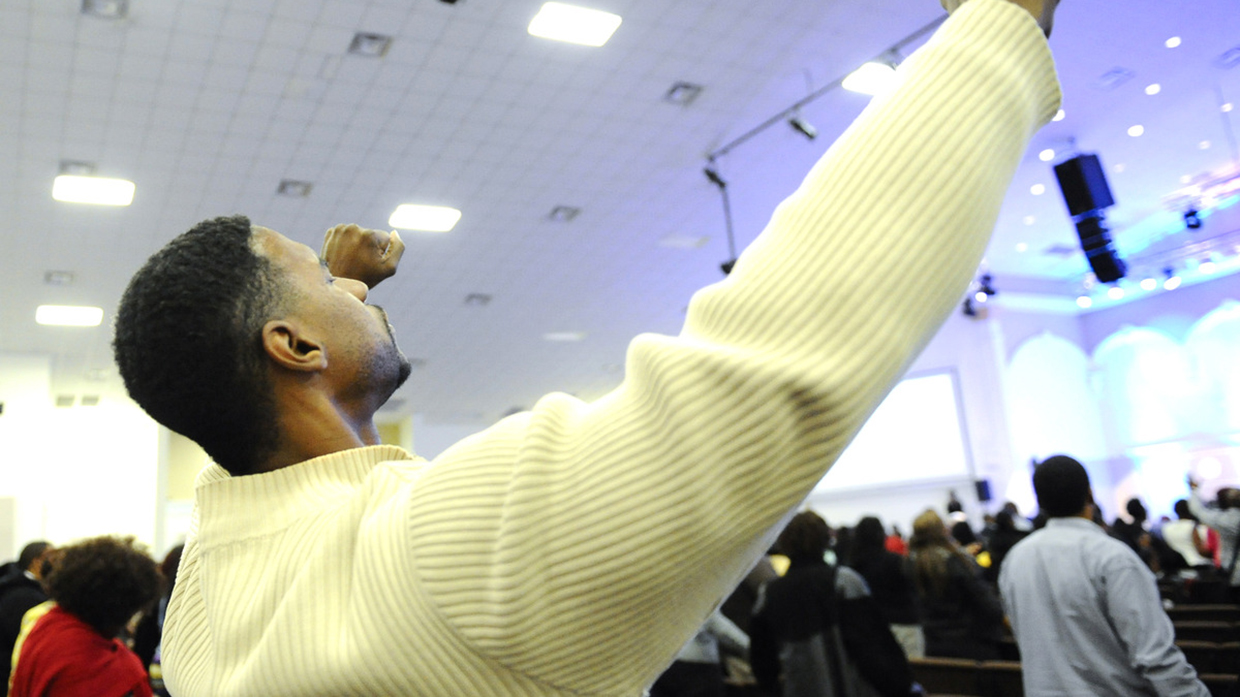Having been outside the mainstream for years, African American churches have learned valuable lessons that have given special meaning to spiritual practices and ideas. White Christians may be familiar with them in theory, but to know them from the underside, from the outside, and from the margins is an exercise in growing in new grace.
Silence is the anchor of speech
It’s easy for Christians to speak. We fill our ears, speak truths, and proclaim the gospel. We have good reason for our proclamation. But we hear less. It’s harder to be silent.
Silence is a corrective. For black and brown people, silence is a deepening, strengthening, and centering discipline. It is a discipline that was learned as black folks were taken from West African shores, unable to communicate in their native tongues, and pushed to find a way of hearing themselves, hearing their God, and, eventually, speaking about their pain.
It is learned still when life in the United States is unfair and unjust and when the rules for black and brown people are set to maintain injustice. In her book Joy Unspeakable, Barbara Holmes says that silence and contemplation bolster the interior life of a community, and ultimately sustains it.
Silence does not remove the power of speech. It anchors it.
Silence doesn’t remove the power of speech. It anchors it. The quiet is constructive because it narrows the focus on what needs to be said. It opens us to seeing what is real. It enables us to say what is wrong and, of course, what is right.
When we’re quiet, we have an opportunity to confront the pain of another. We learn to openly and realistically face our losses. We hear, reflect, and see what has set us apart from our Christian relatives.
The black church is instructed by the presence of God through other folks and notices in the silence those who are as concerned about speaking truth as we are.
Likewise, the white church can seek to be formed by the hard-won words of their black Christian family, actively fighting what Howard Thurman called in The Luminous Darkness “resentful helplessness,” a abandonment of one’s self to the idea that things simply are the way they are, and always will be.
Both blacks and whites can sit silently together and, of course, then speak together. When we’re silent, we learn.
Communion is a unifying act
To paraphrase theologian Homer Ashby, disconnection is the inability to gather together for mutual support and for a common purpose. The need for connection has been an unavoidable reality for African Americans even while it has been a challenge for us.
Connection within the African American community has been customary, but difficult to maintain, and the same holds true for establishing genuine connection between minorities and non-minorities. Both white and black folks should expect that.
Most communities are segregated because of resentful helplessness. Where change is made, people commit to causes regardless of skin color, and support athletic teams no matter their cultural experiences.
The church, too, is a place with the potential to fight resentful helplessness through liturgy, through ministry, through witness. We celebrate communion.
The table brings us together with our spiritual kin. The table is the place, before and after the horror of the cross, where we remember and repeat God’s truth to one another. In close proximity—close enough to smell the juice on our tongues—we offer one another bread.
We take what we received from the Lord, give thanks, eat the bread, and drink the cup. We take the bread from the hands of those who once hurt us. We offer the cup to those we now intentionally seek to know, and love, and learn from.
We eat. We drink. And through this act, we connect. We commune.
Submission is a precursor to misson
Mission refers to our purpose as a New Testament people of service. Mission’s implication is that we cannot preserve the good news while also preserving old lines of demarcation. Mission is actively serving while always submitting.
The practice of submitting to African Americans may be a curious one for many of my white spiritual kin. It may even be unthinkable. But submission is always a precursor to mission. In the ministries of Paul and Barnabas, and for church planters like Priscilla, Aquila, and Timothy, those in mission were also submitted to those they looked to for leadership. They attended to the wisdom residing in their leaders’ experiences with Jesus.
Black leaders know how to minister to the margins because that’s where we’ve lived, learned, served, and developed. If white Christians want to learn how to minister and proclaim the good news at the edges of life, the black church serves as a prominent and relevant model.
Michael Washington is an associate pastor of New Community Covenant Church in Chicago’s Logan Square neighborhood.









